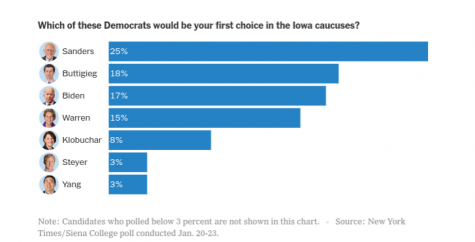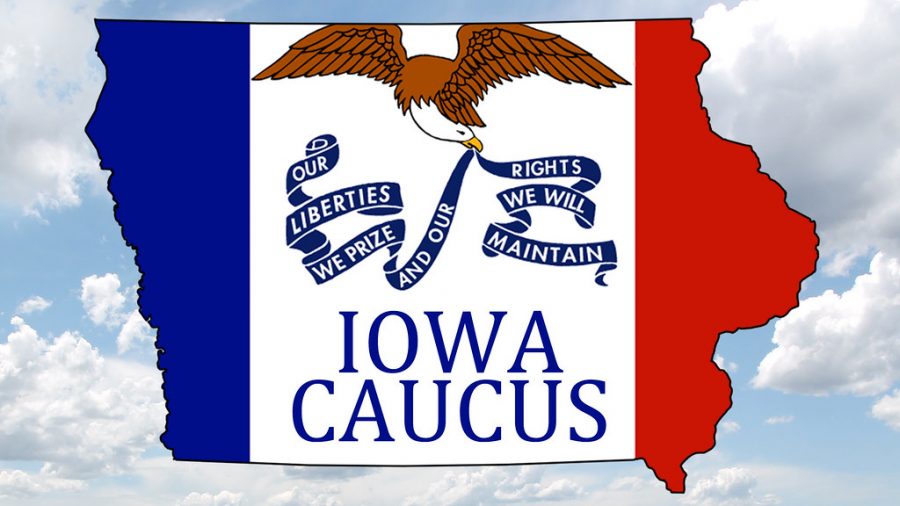What to know about the 2020 Iowa Caucus
The electoral process for the 2020 Presidential Election kicks off in the Hawkeye State as the first of the four primaries and caucuses in February.
On Monday, February 3, Iowa democratic voters will express their support for their party’s nominee in the 2020 election. A caucus is a discussion and a vote where voters of a certain political party organize for an evening to discuss their preference for their party’s nomination. Voters will then stand on one side of the room in their caucus location (a precinct) with people who support the same candidate.
In a caucus, if a candidate receives less than 15 percent of the support, the voters of that candidate can either attempt to gather in more votes or pick to support a different candidate. The number of supporters for one candidate determines how many delegates the candidate will receive.
Iowa has 49 delegates and assigns its delegates by a proportion of the vote each candidate receives. To win the party nomination, which will be decided this coming July in Milwaukee, WI, the winner needs to win 1,990 of the 3,979 delegates (just over 50%). However, in the case no candidate receives the majority, super delegates will then vote to put a candidate over the majority line in a contested convention.
The Democratic field is a very crowded field with twelve Democrats remaining in the field. Recently, Senator Cory Booker of New Jersey and author Marianne Williamson have dropped out of the race.
With the twelve candidates in the field, Senator Bernie Sanders of Vermont has taken the lead according to some polls.

According to a poll from New York Times/Siena, Sander’s lead is followed up by former South Bend, IN Mayor Pete Buttigieg, who was leading in a few polls from mid-November to early January.
Another candidate polling high in Iowa is Senator Elizabeth Warren of Massachusetts. Senator Warren saw a lead in the polls from late September to mid-November and according to a few polls, is in third behind Senator Sanders. Mayor Buttigieg also saw good polling numbers and a lead in them from mid-November to the end of 2019.
Up until mid-September, Biden was leading rather comfortably in polling, however polling since mid-September has shown a very contested race. Currently, the polling is tight in the Hawkeye State. Biden does have a lead in a few polls, but Sanders has seen a surge in some polls.
Every Democrat nominee since Al Gore in the 2000 election who has won the caucus, has gone on to win the party nomination. The Iowa caucus is an important part of the electoral process because whoever does win it often gets a lot of media attention.
During the 2016 Iowa caucus, Senator Sanders narrowly lost the caucus to former Secretary of State Hillary Clinton (who was then defeated by President Donald Trump in the 2016 general election). Biden, in his unsuccessful presidential run in 2008, finished fifth with no delegates and less than 1% of the vote. Biden dropped out of the race shortly after.
Following the Iowa caucus, a primary will be held in New Hampshire on February 11 and another caucus will be held in Nevada on February 22. A week after Nevada, the final February election will conclude with the South Carolina Primary on February 29.

Paul is a Senior at RBHS and a proud American.
You can contact him via email at [email protected]










